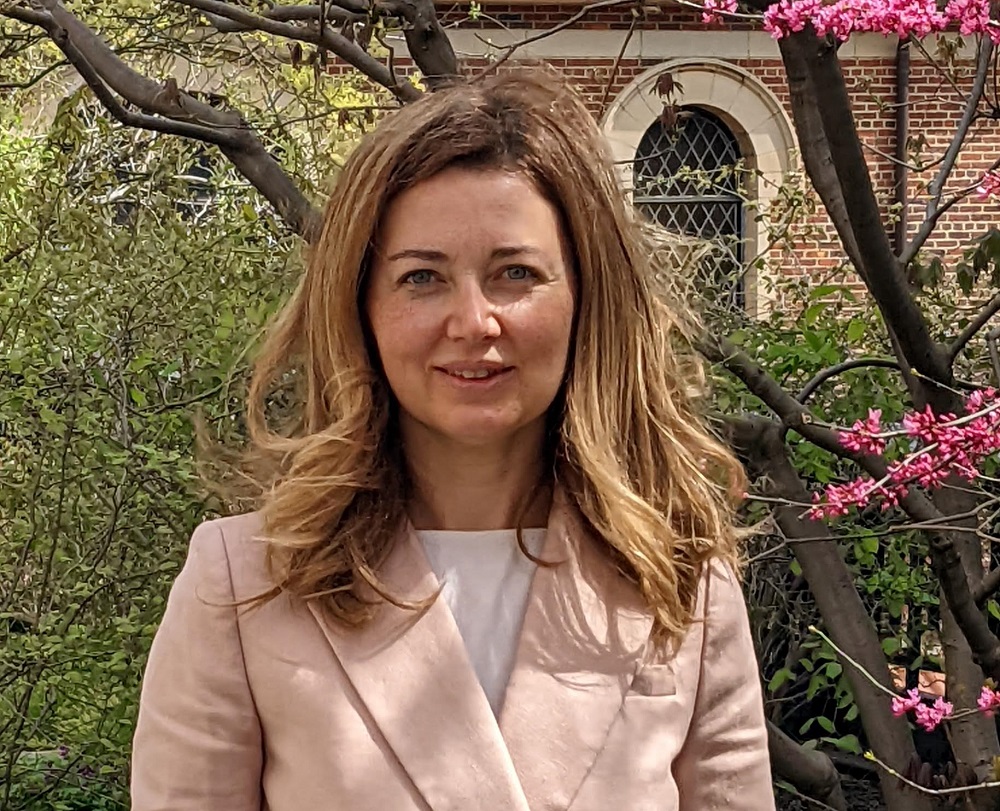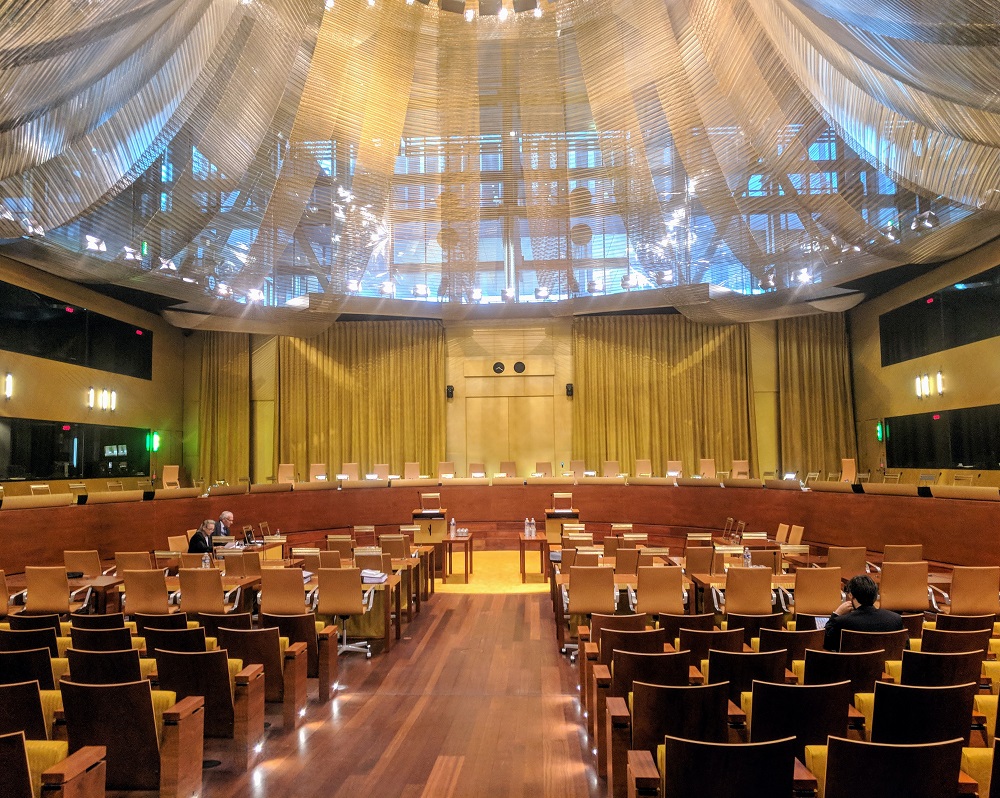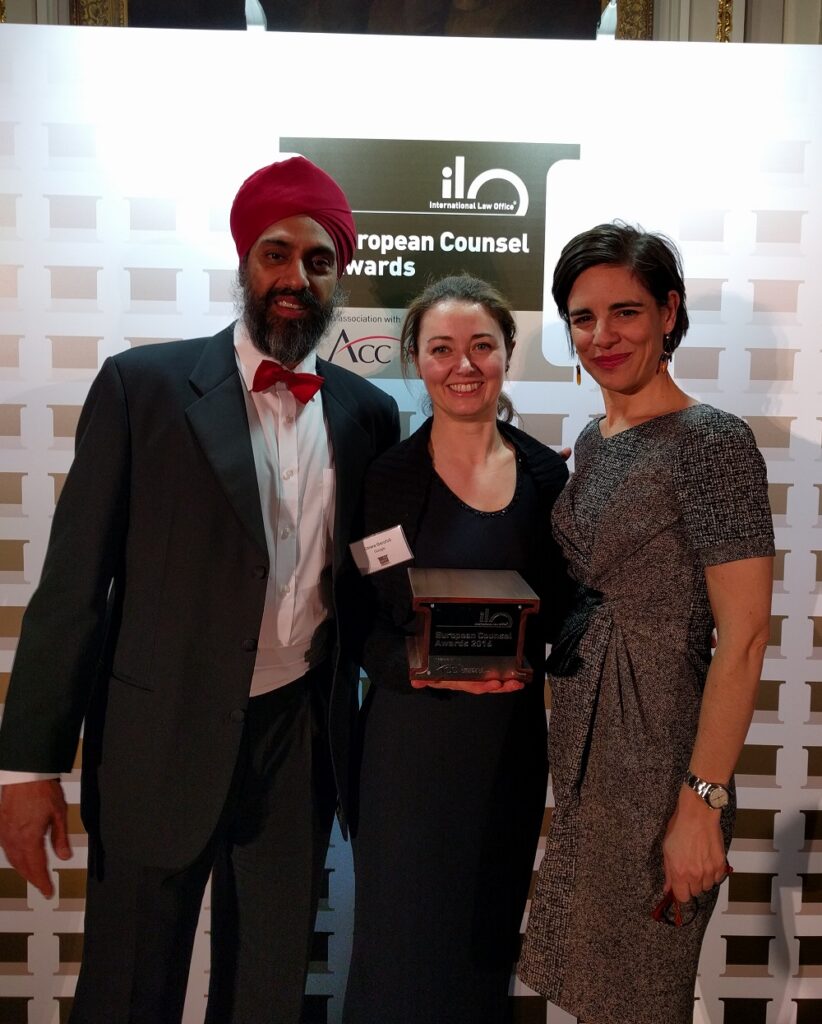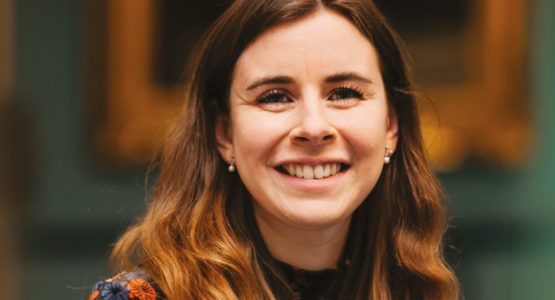Chiara Garofoli (2005) studied for an LLM at St John’s and went on to specialise in intellectual property law. She is now a senior corporate counsel at a major tech company and adjunct lecturer in Internet Law. Chiara is the Country Lead in Italy for #IamRemarkable, an initiative aimed at empowering women and other under-represented groups to celebrate their achievements in the workplace and beyond.
What first interested you in Law?
I recall deciding to study Law at a young age. As a child I had a strong sense of justice and was intrigued by the idea of assisting individuals in resolving disputes. At the time I was drawn to the notion of eventually becoming a judge. Over the years I considered a variety of options, but they all involved the practice of law. By the time I chose Law for my undergraduate degree, I was fascinated by the idea of specialising in international law and working for an international organisation. It is interesting to note that the career path that I have ultimately chosen is the only one that I had not initially considered!
Tell us a bit about your career journey.

I graduated in Law from the University of Pavia, Italy. As an undergraduate, I was a member of Collegio Ghislieri, one of the foreign institutions with which St John’s has active exchanges. After graduating I began the process to qualify as a lawyer and set foot for the first time in a law firm to begin my training.
In 2004 I moved to Cambridge and St John’s to pursue a Master of Law (LLM). After completing this and qualifying I joined Freshfields Bruckhaus Deringer in Milan, where I continued to practise IP law and was widely exposed to dispute resolution. These were highly formative years, but I also began to consider in-house roles to be closer to the business. To prepare for the right opportunity, I progressively expanded my practice to new areas, including advertising, data protection, media and technology. My last experience in private practice was with DLA Piper, where I co-founded an e-magazine which is still being regularly produced by the firm 12 years later.
And now you’re working for Google. What has your experience there been and what are your main responsibilities today?

I was hired by Google in 2011 for a local counsel role. My primary responsibilities were to handle litigation, regulatory work and relationships with law enforcement in Italy and Greece.
My corporate career began in the best possible way. Two days after starting my role, I flew to California to attend a conference in Los Angeles. I then spent some time in Silicon Valley, immersing myself in the company’s culture and getting to know key stakeholders in the headquarters and fellow new hires in the legal organisations.
In 2015 I took advantage of a rotation opportunity in London and joined what would soon become my new team, International Litigation. As a Senior Counsel in the team, I am responsible for ensuring a consistent approach to how we respond to litigation around the globe. I am in the very privileged position of working on cutting-edge matters in a great number of different jurisdictions in EMEA and APAC regions, as well as on cases involving different areas of the law, including cases before the European Court of Justice and the European Court of Human Rights.
In my 12-year tenure at the company, I have also had the opportunity to work on EU public policy matters in Brussels, serve as a judge at the Moot Law Court Competition, act on a 20% basis as a country lead for #IAmRemarkable — a project in the area of Diversity, Equity, Inclusion and Allyship — to mentor younger women, and bring to Italy the Google EMEA Legal Summer Institute, an initiative aimed at improving access to legal careers for talented students from traditionally under-represented backgrounds.
What sort of cases do you work on?


Over the years I have worked on hundreds of cases, mainly in the area of intermediary liability. Some of the recurring issues that I have dealt with in courts around the world are:
– Under what conditions are search engines and hosting platforms responsible for users’ generated content?
– What constitutes a valid notice to trigger a duty to remove illegal content by digital services?
– Can a country’s court determine what internet users in other countries should have access to?
– In which circumstances can platforms terminate access to their services?
As a counsel for a global company, it is fascinating to observe how similar issues are addressed in different parts of the world and how cultural values, among other factors, may make certain countries more ‘litigious’ than others.
The cases I work on often involve defending core principles, such as freedom of speech and access to information, while seeking to balance this with the need to protect equally important fundamental rights, such as the individual’s right to privacy.
For instance, I had the opportunity to witness first hand the creation of what is commonly referred to as the ‘right to be forgotten’, ie the right of individuals, under certain circumstances, to seek the removal of links to content about themselves from search engines. This right was established with a decision by the European Court of Justice in 2014, but it took many more years of litigation and interactions with data protection authorities around the European Union to better define the boundaries of this new right and, for companies like Google, to refine the policies that are applied daily when processing individuals’ requests. Finding a way to comply with that decision without undermining the users’ right to access information in all cases involving clear public interest was a significant shift.
Another interesting case I had the opportunity to work on involved resolving an access ban on YouTube in Turkey a few years ago. The case originated from a decision to completely block access to the popular video sharing platform due to some videos containing leaked recordings from sensitive political conversations. The ban remained in place for some months, even after removal of the controversial videos. We challenged the decision, and the Constitutional Court eventually ruled that the ban was contrary to the fundamental right to freedom of speech.
What are some of the biggest changes you’ve noticed to in your area of law since you started working for Google?
It’s not just the law that has changed; technology is evolving and changing constantly. From a technological standpoint, we are in the midst of a period of groundbreaking innovation, and lawmakers around the world have never been more active.
The EU General Data Protection Regulation (GDPR) was a first instance of new regulation that significantly impacted the operations of many businesses worldwide, particularly internet players.
Since then we have witnessed a considerable amount of legislative activism, both at the national and supranational levels (particularly in the EU), focused on the digital realm and new and emerging technologies. For example, the EU Digital Services Act is introducing a whole new set of rules and obligations that apply to digital services, in the space of content moderation and beyond. It represents a major milestone in the history of platform regulation, and courts around Europe will be dealing with new questions arising from its interpretation for years to come.
Do you think increased use of, and interest in, AI technology is going to have a significant impact on your work?
Unquestionably. And the influence on my work is two-fold. Firstly, it is going to affect the day-to-day handling of certain legal tasks: AI-powered software has been used in the legal profession for some time to carry out tasks such as translations, bulk document reviews, contract drafting and analysis of legal texts, and I can only imagine that the legal sector will continue to benefit from the availability of increasingly sophisticated dedicated AI tools in the coming years. Secondly, many of the novel and challenging questions posed by the development of AI and new technologies, including the interplay between the freedom to innovate and the application of existing rules in the fields of copyright, privacy, competition, product safety and so forth, will be litigated in courts. As a litigator I am excited by the opportunities to defend responsible innovation and see how the courts will shape the law applicable to AI in the coming years.
What advice would you give to students or young alumni?
To students and young alumni, I would offer the same advice that I would give my younger self. First, there is no single, correct career path. Second, be adaptable and open to possibilities, particularly in areas and sectors that are not those in which you have previously seen anyone you know (some of today’s students may end up in jobs that none of us could yet imagine). Finally, seek a role that aligns with your values.
Written by
Chiara is Senior Legal Counsel at Google. She graduated in Law from the University of Pavia, Italy before pursuing an LLM at St John’s. Chiara is the Country Lead in Italy for Google’s #IamRemarkable initiative.





